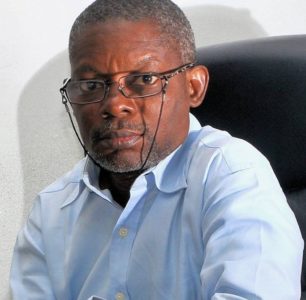
Lagos
Railway system has been grossly neglected in Nigeria. This is largely due to its inability to enjoy much patronage from the public. Compared to other means of transportation, railway has been uninteresting and are left to cater for the lowly placed. Except if a revolution happens in the ministry of transportation, it will be impossible to witness the bubbling nature of the railway system like we use to have it in the good old days. I am not passing a vote of no confidence on the authorities saddled with the responsibility of ensuring that the railway system gets back on track but obvious economic indices have proven that it will be difficult to achieve this today. We are badly ravaged by recession and it is more than a mere word as the Honourable Minister of Finance has made us believe. The railway system must be at pal with what is obtainable in the civilised countries of the world and this costs money. Huge money for that matter and our country may not have the wherewithal to pursue such now.
However, recent events proved that some steps have been taken to reposition the railway system but bringing it to a reasonable completion might be an issue considering some political will. The administration of President Buhari is almost winding up. Naturally, politicians have the first two years of their tenure to work. The last two are usually for electioneering campaigns. This might hamper the development of the railway system as most projects are likely to stop for political activities.

Lokoja
Railway sector, can be transformed once the necessary machinery can be put in place. Railway is one of the cheapest means of transportation in the early 70s and 80s and the rail transport was effective and efficient even down to the 90s.I vehemently believe that it can still be turnaround in this administration and the key thing is for the Federal Government to support the sector with enough funds then the railway will return to its former days. Another major factor that led to its collapse was lack of maintenance culture which culminated its problems.

Aba
I do not think so because so many things have changed. Back then, it used to be one of our major transportation but now, we have many fast and trusted means of transport that people are used to. Do not get me wrong, the transformation of our railway will work but it will not be like the former days because the money for that had been looted by the former administration. The problems created by that looting is what we are all facing which is recession.

Lagos
I have no doubts.However, the fact remains that railway systems are not cheap; hence most countries build on what they already have rather than starting from scratch. I suggest they should develop a sort of public-private partnership in the process of transforming the rails systems. As soon as the rails are completed, just as we have various transport systems running various buses to various locations, we will naturally have investors who will buy trains and coaches and begin to ply various locations.

Lagos
Yes. I see this administration transforming the railway even better than its former days because apart from the fact that the current railway project seeks to renovate the existing tracks, for the first time it includes coastal railway line (Lagos-Calabar) which is expected to link all the sea ports.
Interestingly, the railway project forms part of the 2017 budget and it is expected to be delivered in 2019. However, we need to keep track of government policies, budgets and projects (the railway project inclusive) to ensure everything goes as promised or written for the greatness of our dear country.

Ilorin
Well to an extent, the Buhari-led administration has fulfilled its promise on reviving the railway transportation system in the country. Obviously, I observed that trains passes through the Unity road at Ilorin terminal at least three times in a week. In fact, I plan travelling by train on my next visit to Lagos. I am sure other states too have similar experience utilizing the train systems. I see Lagos having the highest train terminals in the nearest future through its on-going Lagos- BadagrySeme border roads. However, the administration of Buhari needs to intensify more efforts to actualize other major railways especially Lagos-Calabar, Abuja-Kano and so on.

Lagos
Well, I feel it is meant to be effective and efficient than how it was in the former days but that is not where we are right now. I know of a-25-year developmental plan that the country has for the railway system and going by that, the railway system requires huge investment and the investment I am not sure can be provided by just Nigeria alone. So, if the current administration cannot seek out partnership that would effectively see that come to light, then that will be a major clog in the way of progress in the sector. What this administration can basically do is to lay a foundation, get a road map and subsequent government/administration to implement such because the Nigerian railway system currently has about 3,000km road network covered currently and most of which are not effective and in the current budget I know that has been expanded such that it should cover States from South-West to the South-South. However, there were allegations that the South-East corridor was abandoned in the whole scheme. Well, I do not know how true that is because I did not see the plan. In essence, what I am saying is that the sector can take off smoothly under this administration if they are being serious enough.They can lay a foundation for effective implementation of a good railway system that will be better than what we have like the locomotive engines. Rather, we should be having light rail system or faster rail. I think the greatest investment in the sector is the network itself and can this administration do it? Yes, they can kick start it and see to the implementation but can the dream of a better railway system fully come to realisation? No, I do not think so because doing the work itself, would be projectized and that will mean it will take a while for that to be completed. For example, the railway constructed between Badagry and Lagos Island which is sponsored by the World Bank has been going on for 3-5 years or there about. If one is looking at something that will go round Nigeria, it will take about 10 years.

Abuja
I see a massive transformation in the railway sector in Nigeria in the nearest future. Reasons being that government are investing huge capital in the sector lately. The recent loan of $5billion being requested by the government is for the railway sector. With all this, the railway sector will be more effective and efficient for everyone to make use of for ease access of transportation.

Lagos
For this to happen, it would take some time as rail services are huge investment with a long term viewpoint. The rot in the system did not take a year, nor did it take a decade.So to make it to the standard we all expect it to be, requires gradual but steady process which has been on by the current administration.

Lokoja
Yes, because this administration have greatly focused on the railway system which is regarded as one of the key components of the transportation sector and a roadmap have been unveiled to drive the development of the sector.So far the railway sector has taken the centre stage with the completion of the Abuja-Kaduna standard gauge rail line which was said to have opened the eyes of Nigerians to the possibility of an efficient rail system. Meanwhile, the Acting President, Prof. YemiOsinbajo, recently flagged off the $1.5bn Lagos-Ibadan part of the standard gauge line which work has commenced in earnest.In order to open up the railway sector to private sector participation, the Federal Government has concessioned the narrow gauge line to General Electric (GE), an American multinational conglomerate, which is expected to drive a reform in the country’s rail sector. I read something online about what the Minister of transportation said about the railway sector which states that the government had settled for GE because the corporation had expressed readiness to undertake the transformation of the country’s rail system through various activities like the introduction of 20 coaches and 100 wagons, construction of a Transport University with specialisation in rail, among other activities. The concession would see the GE investing over $2.2bn in the two narrow gauge lines which will extend to many parts of the country.